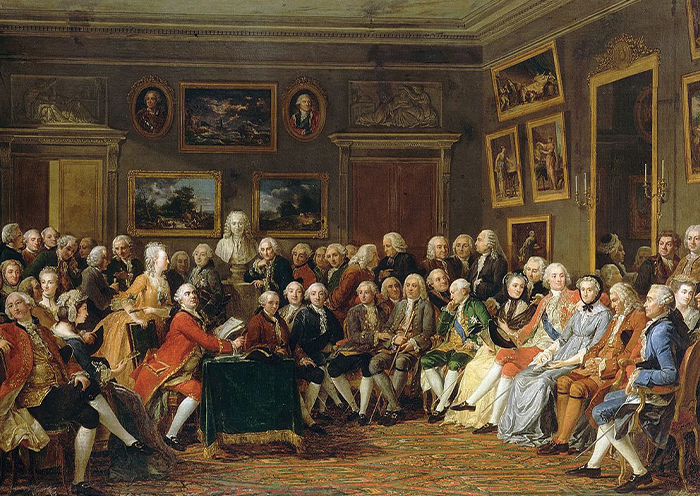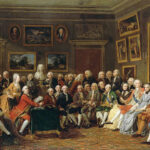The Enlightenment and Gender
A Beacon of Progress, A Legacy of Contradictions
The Enlightenment, a sweeping intellectual and cultural movement of the 17th and 18th centuries, radically reshaped the Western world. With its clarion call for reason, scientific inquiry, individual rights, and secular governance, it laid the foundations for modern democracies, the scientific method, and revolutionary shifts in philosophy, education, and politics. Yet, despite its progressive banner, the Enlightenment was not universally liberatory. In fact, it reinforced and institutionalised certain social hierarchies, including a rigid gender binary that continues to echo in Western societies today.
The Enlightenment emerged in response to centuries of religious dogma, feudal oppression, and monarchic absolutism. Philosophers like Immanuel Kant, Voltaire, Mary Wollstonecraft, Jean-Jacques Rousseau, and John Locke championed ideals that would become pillars of liberal democracy: liberty, equality (at least in theory), and rational inquiry.
Science flourished. Political revolutions brewed. The world became increasingly legible through reason and empirical observation. However, in the rush to codify universal “truths,” Enlightenment thinkers often excluded or oversimplified complex human experiences, particularly those related to gender.
Despite rhetoric about equality, the Enlightenment’s “universal subject” was implicitly male, white, and European. Women were regularly framed as inherently different and inferior by nature. Philosophers like Rousseau, for instance, argued that women should be educated only in relation to their roles as wives and mothers, and that their “natural” place was in the private, domestic sphere.
This binary worldview, a clear division between male and female roles, became more deeply entrenched during the Enlightenment, even as earlier conceptions of gender, particularly during the medieval period, were in some ways more fluid. In the pre-modern world, gender roles were certainly hierarchical and restrictive, but they were not always governed by a strict binary logic. Early modern Europe had space (albeit limited) for alternative gender expressions, especially within certain religious or folkloric contexts.
With the Enlightenment’s focus on classification, taxonomy, and biological essentialism, thinkers began to pathologise any deviation from what was deemed “natural” male or female behaviour. Gender became scientific—measurable, defined, and fixed.
One of the Enlightenment’s lasting contributions is the birth of modern science. But early scientific inquiry often sought to reinforce social hierarchies rather than dismantle them. Through anatomy, phrenology, and embryology, scientists attempted to “prove” women’s intellectual inferiority and justify their exclusion from public life.
The Enlightenment gave rise to a belief in the objectivity of knowledge, yet that knowledge was produced within a narrow framework, one that largely ignored the lived realities of women, gender-nonconforming people, and others outside the dominant paradigm. The very tools of progress, rationalism, empiricism, and categorisation, were used to solidify the gender binary and marginalise anyone who didn’t fit neatly within it.
Today’s Western gender norms are deeply indebted to Enlightenment thinking. The strict male/female binary, now often perceived as timeless or “natural,” is in many ways a product of Enlightenment rationalism, which is a system that sought to categorise human beings in the same way it categorised plants, animals, and minerals.
This legacy complicates how we understand progress. The Enlightenment was undoubtedly transformative and emancipatory in many ways. It questioned divine right, fought for freedoms of speech and conscience, and seeded the ideals of human rights. But it also laid the groundwork for modern systems of exclusion, especially those based on gender, race, and class.
Recognising the Enlightenment’s limitations doesn’t require rejecting its achievements. Instead, it invites us to reflect critically on whose voices were included in its grand narrative of progress, and whose were silenced. Contemporary movements that challenge the gender binary, be they feminist, queer, or trans, are in many ways responding to the unfinished business of the Enlightenment. They seek to extend the promise of liberty, equality, and reason to all people, not just those who fit a narrow mould of “universal” humanity.
In doing so, we might finally fulfil the Enlightenment’s highest ideals—not by preserving its blind spots, but by seeing beyond them.
By Anicet Charles Gabriel Lemonnier – histoire-image.org, Public Domain, https://commons.wikimedia.org/w/index.php?curid=36897967












